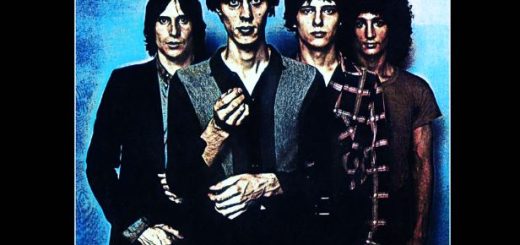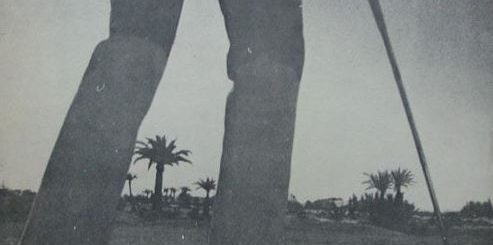Guiding Light by Television Lyrics Meaning – Unravelling the Lyrical Labyrinth of a Proto-Punk Masterpiece
Lyrics
Belong to the night?
Only, only
Only tonight
All the ladies
Stay inside
Time may freeze
A world could cry
All this night running loud
I hear the whispers and I hear the shouts
And though they never cry for help
Tell me who sends these
Infamous gifts
To make such a promise
And make such a slip
Oh no
Can’t pull a trick
Never the rose
Without the prick
Oh, but tell me, how do I say?
I woke up and it’s yesterday
Do I again face this night?
Guiding light, guiding light
Guiding through these nights
Darling, darling
Do we part like the seas?
The roaring shells
The drifting of the leaves
But all intent
Remains unknown
It’s time to sit up
Sit up in the throne
It’s seen before but it’s always new
So look close and see who’s come through
Never again to face this night
Guiding light, guiding light
Guiding through these nights
In the pantheon of rock music, few bands have managed to fuse poetic introspection with raw guitar riffs as masterfully as Television. Their track, ‘Guiding Light’, is a mesmerizing odyssey through the heart of the human condition, nestled within the 1978 album ‘Adventure’. As the track unfolds, it invites listeners on an enigmatic journey—equally personal and universal.
Television’s ‘Guiding Light’ is not simply a song; it’s a literary escapade that delves deep into themes of existential quandary and transient love. As frontman Tom Verlaine delivers his soul-bearing vocals, those attuned to the song’s message find themselves looking inward, confronted with the very essence of their nocturnal musings.
A Beacon in the Dark: The Enduring Lure of ‘Guiding Light’
The haunting inquiry ‘Do I belong to the night?’ opens ‘Guiding Light’ like an invitation into twilight’s embrace. Conveyed through Tom Verlaine’s melancholic tones, there is a visceral sense of belonging, not to the bright cheer of day, but to the introspective shadows of the evening. In this opening query lies not a simple question, but an existential exploration of identity, one’s place between the fading sunset and the first light of dawn.
To the listener’s ear, the night acts as a metaphysical plane where the usual rules of reality are suspended. Time itself ‘may freeze’ in this liminal space, pushing one to ponder the fragility of our world, a world that wails silently, as people are too often reluctant to ‘cry for help’. Television effectively uses the night as a canvas to paint an image of silent resistance to despair.
Fables of the Heart: Deciphering the Cryptic Love Notes
Television never shied away from dually layered lyrics. ‘Darling, darling, do we part like the seas?’ sings Verlaine, conjuring biblical symbols of separation and reunion. It questions the very nature of closeness, especially as it must survive the tumult of life’s tempests. Love—like the roiling seas and ‘drifting leaves’—is depicted as a force of nature that, even when directed with intent, retains its enigmatic core.
What this track suggests is that relationships, much like the unseen currents beneath a calm ocean, carry underneath them a complexity not visible to the naked eye. The overarching idea seems to be that, even when parted, there is an undercurrent—a ‘guiding light’—that navigates us back towards each other or forward to our respective destinies.
The ‘Infamous Gifts’ and the Thorny Roses of Existence
‘Tell me who sends these infamous gifts,’ laments Verlaine, addressing the mysterious forces that gift us with both pleasure and pain. The phrase ‘Never the rose without the prick’ speaks volumes of life’s relentless duality. It’s a reminder that joy cannot exist without sorrow, emphasizing the bittersweet trade-offs we experience in every moment of our daily lives.
This is Television at their most philosophical—suggesting that even the most alluring aspects of life come with their inherent risks and pains. Such insightful lyricism draws the listener into a contemplative state, where the very fabric of reality is questioned, and the answers remain tantalizingly out of reach.
The Enigmatic Throne: Navigating the Mind’s Labyrinth
Television further explores the idea of consciousness and perception. ‘It’s seen before but it’s always new,’ captures the novelty of experience—a testament to the fluidity of existence and the subjective nature of reality. To ‘sit up in the throne’ is perhaps to take charge of one’s own narrative, to recognize one’s own power and agency in shaping the journey through life’s innumerable pathways.
As such, the ‘throne’ could be a metaphor for self-actualization, commanding the listener to rise up and observe the world from a place of newfound understanding and authority. This existential urge compels us to embrace our individual experiences, no matter how familiar or foreign they may seem.
The Whispered Shouts: The Unforgettable Lines Echoing Through Time
There’s a haunting beauty in the lines ‘I hear the whispers and I hear the shouts,’ which likely resonates with every listener who has ever felt lost in the cacophony of life. These words exemplify the duality of existence—the silent and the loud, the internal and the external—which Television handles with poetic grace and compelling complexity.
Each couplet in ‘Guiding Light’ carries the weight of such whispered shouts, forming a conversation between the song and the soul that makes it an ageless emblem of rock literature. This bridge to our deepest selves is why ‘Guiding Light’ endures as a song that doesn’t merely entertain, but rather illuminates, educates, and speaks directly to the human condition.








